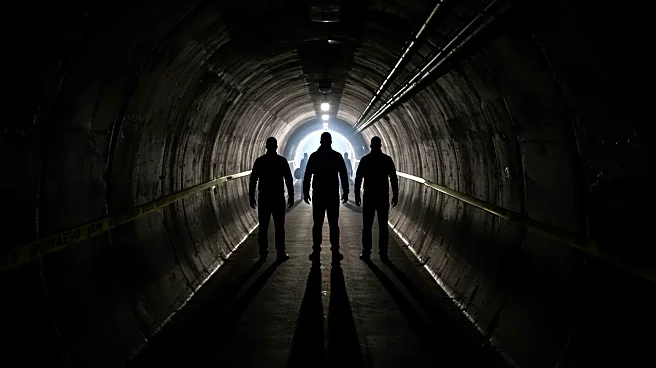What is the story about?
What's Happening?
Armed terror groups in the Gaza Strip are contemplating relocating hostages to Gaza City to link their fate with Israel's planned military operation in the area. This development comes as mass protests in Tel Aviv demand a ceasefire and a comprehensive hostage return deal. The Israeli government, led by Prime Minister Benjamin Netanyahu, is under pressure to negotiate a comprehensive agreement, although mixed signals suggest a partial deal has not been entirely dismissed. The Israeli Defense Forces (IDF) are preparing for the Gaza City operation, with plans presented to Chief of Staff Eyal Zamir and awaiting approval from Defense Minister Israel Katz and the security cabinet. Meanwhile, the United States may propose a phased plan involving the release of hostages and steps toward ending the conflict.
Why It's Important?
The potential relocation of hostages to Gaza City could significantly impact the Israeli military's strategy and the broader geopolitical landscape. The move aims to increase pressure on Israel, potentially complicating military operations and negotiations. The situation underscores the delicate balance between military action and diplomatic efforts to secure the hostages' release. The protests in Israel reflect public frustration and the urgency of resolving the hostage crisis. The involvement of the United States in proposing a phased plan highlights the international dimension of the conflict and the potential for diplomatic intervention to influence outcomes. The decisions made by Israeli leaders in response to these developments could have lasting implications for regional stability and security.
What's Next?
The IDF's plans for the Gaza City operation are set to be reviewed by key Israeli officials, including Prime Minister Netanyahu and the security cabinet. The potential U.S. proposal for a phased hostage release and conflict resolution could present Israel with a strategic dilemma, balancing military objectives with diplomatic opportunities. The ongoing protests in Israel may continue to shape public opinion and government policy, potentially influencing the pace and nature of negotiations with Hamas. The international community's response, particularly from the United States, will be crucial in determining the next steps in the conflict and the prospects for a peaceful resolution.















